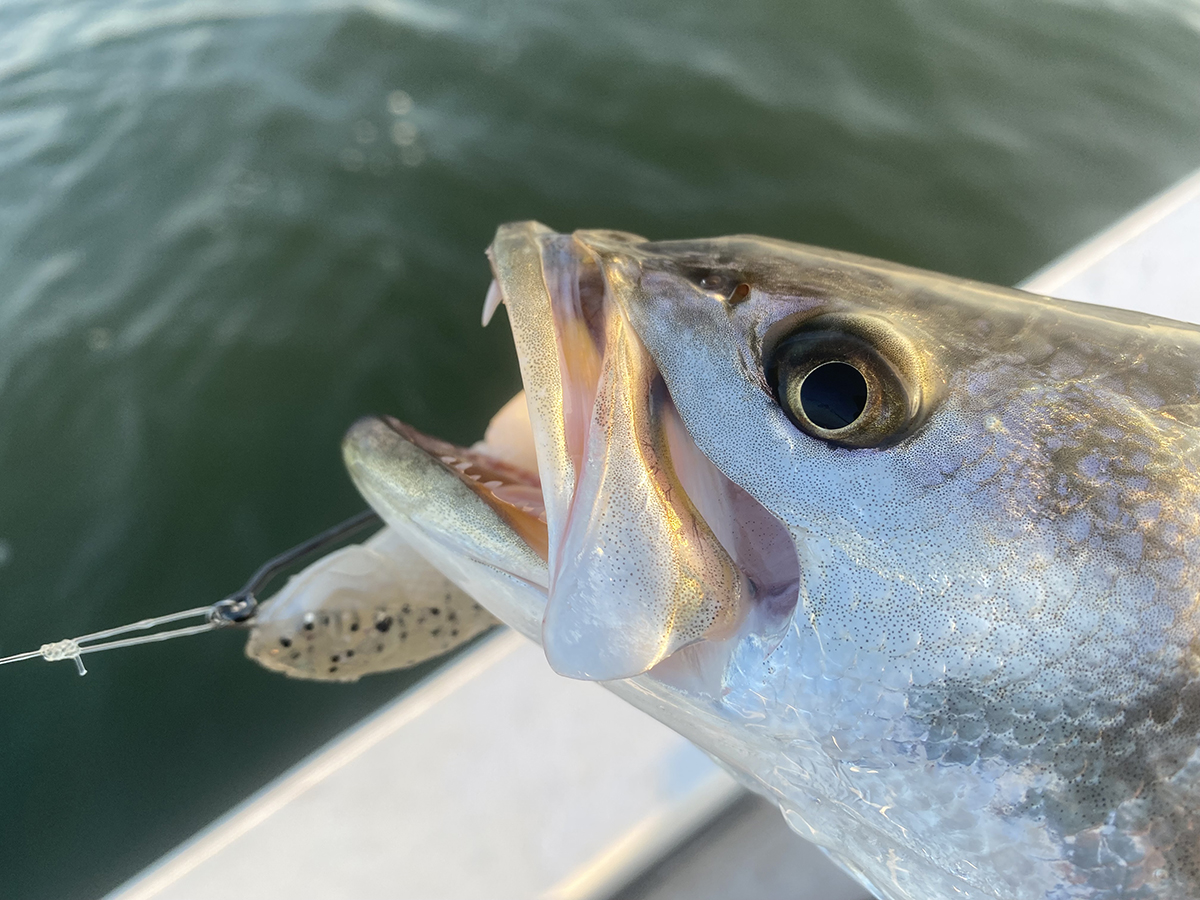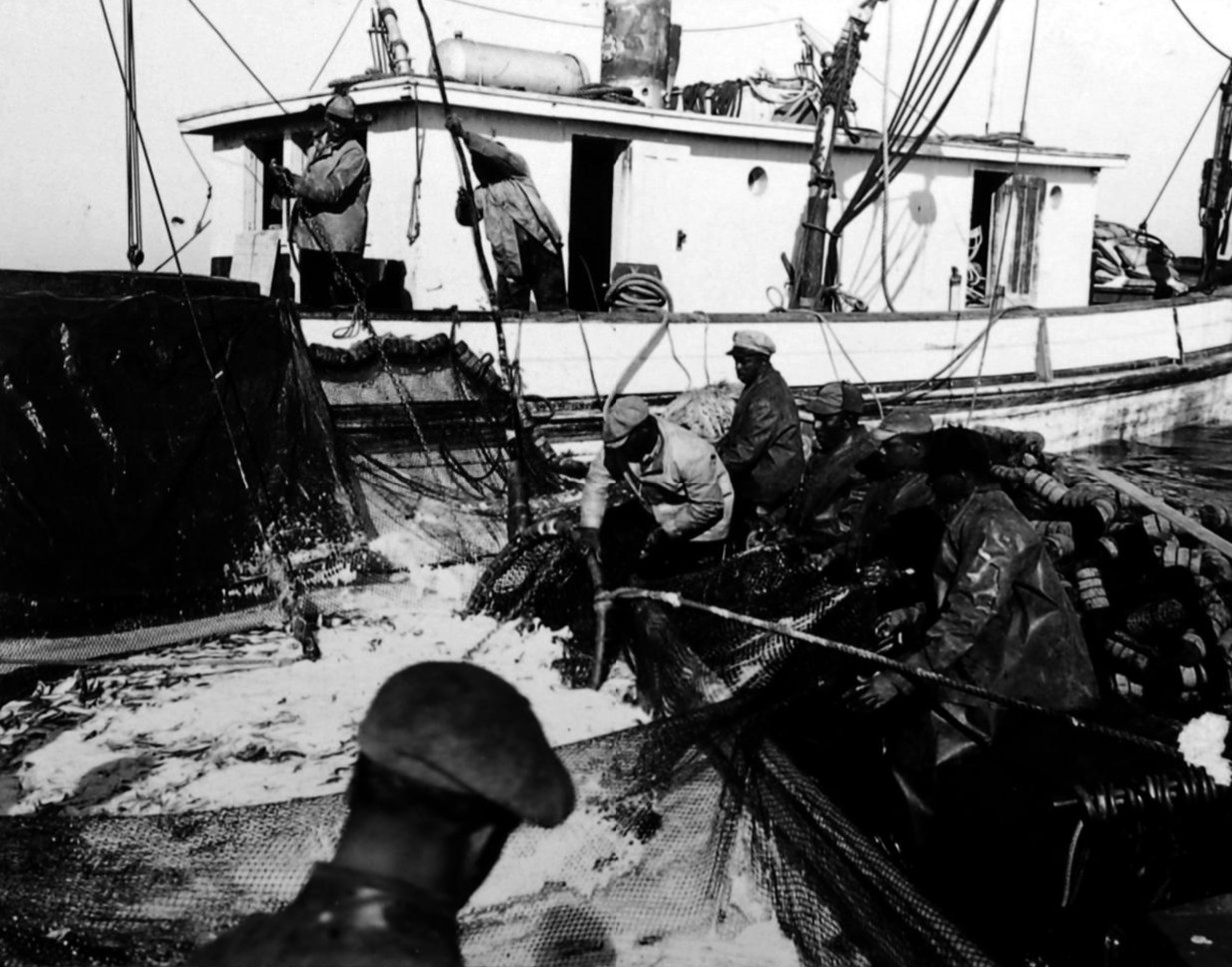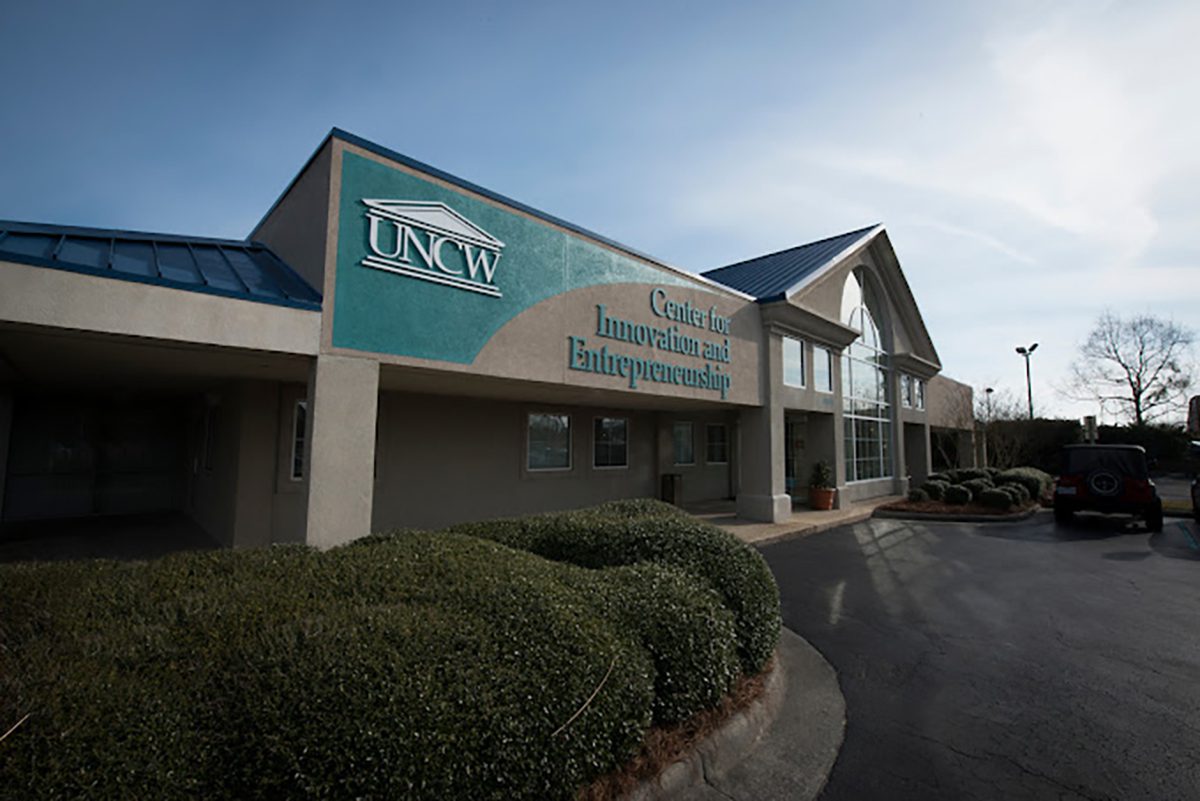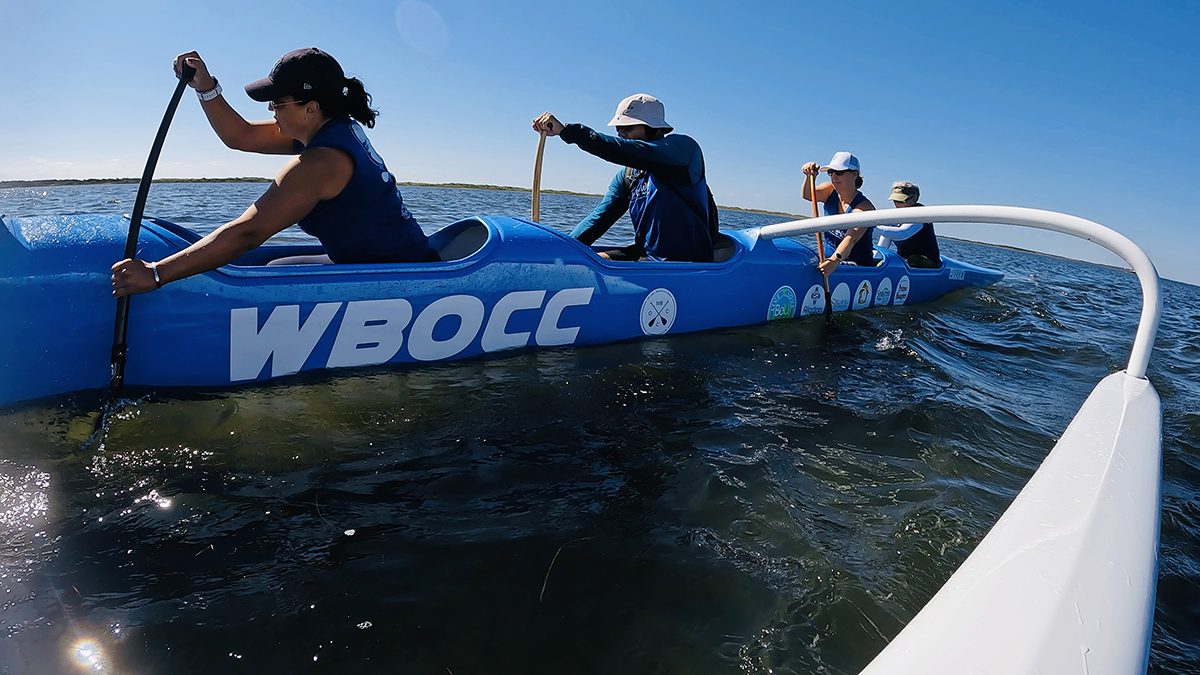
BUXTON — Probably never before would “Aloha, y’all!” be such a culturally apt greeting for a vessel pulling up to an Outer Banks dock.
But that changed this month when a sleek six-paddler, ocean-blue, outrigger canoe, notable for the long, skinny extension off its left side that looks somewhat like a floating sidecar, arrived at Swell Motel in Buxton on a late Saturday afternoon, making for a novel scene even for boat-centric Hatteras Island.
Supporter Spotlight
The traditional oceangoing Polynesian canoe, widely used in Hawaii, Tahiti and Samoa, turned out to be a perfect vessel to bring attention to the goals of We the Water, a collaborative clean water awareness campaign.
“It’s the first time an outrigger canoe has been out here,” Bernadette Burton, president of the Wrightsville Beach Outrigger Canoe Club, said in an interview after paddlers completed a three-day, 125-mile journey from Swansboro to Cape Hatteras on Sept. 16.
“We felt so lucky and so blessed, we almost forgot how tired we were.”
Twenty-four paddlers in the 92-member club, the first of its kind in North Carolina, joined the second leg of the three-year plan to paddle up the entire 325-mile coast to talk with coastal folks about water quality issues. Last year, the club’s We the Water team paddled 120 miles from Sunset Beach to Ocean in Carteret County.
We the Water evolved during club brainstorming sessions, when member Kerri Allen, who works as the North Carolina Coastal Federation’s coastal advocate at its Wrightsville Beach office, realized the natural link between the two nonprofits.
Supporter Spotlight
Allen, who joined the canoe club in 2019, suggested that the paddling community’s culture of “mālama” — a Hawaiian word that means “to take care” — was a perfect fit with the Coastal Federation’s clean water advocacy and coastal stewardship.
The Coastal Federation publishes the Coastal Review, an editorially independent online newspaper.
In the interest of taking a positive approach to coastal water quality, Allen said, the We the Water initiative was born to foster connecting with the people who actually live and work along those waters, while at the same time raising funds to support the Coastal Federation’s work.
It was decided that a contingent of club members would paddle up the entire North Carolina coast, divided in three parts over three years. By stopping along the way and meeting with folks for some friendly conversation, the hope was that the paddlers could raise awareness about risks to clean water and empower communities to protect water quality.
“It can be doom and gloom, frequently, so we wanted to focus more on the good,” Allen told Coastal Review. With its striking appearance, the canoe served as a human magnet, drawing curious folks over to docks and shorelines.
“People were fantastic,” she said. “They were very surprised. Most of them, this is the first time they’d ever seen an outrigger canoe. Most people didn’t know what it was.”
Even those who did recognize the vessel had only seen them in Hawaii, or on the closing credits of the old TV crime drama series “Hawaii Five-O.” People would come up to chat with the paddlers, Allen said; sometimes they’d sit in the boat.
“We had some really great conversations, everyone from commercial fishermen, oyster farmers, local businesses hoteliers, and just folks out enjoying the water,” Allen said.
Long popular on the mainland West Coast, where there are about 70 clubs, outrigger canoes started showing up more on the U.S. East Coast after the founding in 1997 of the East Coast Outrigger Racing Association, which includes clubs in Canada and about 16 in the U.S.
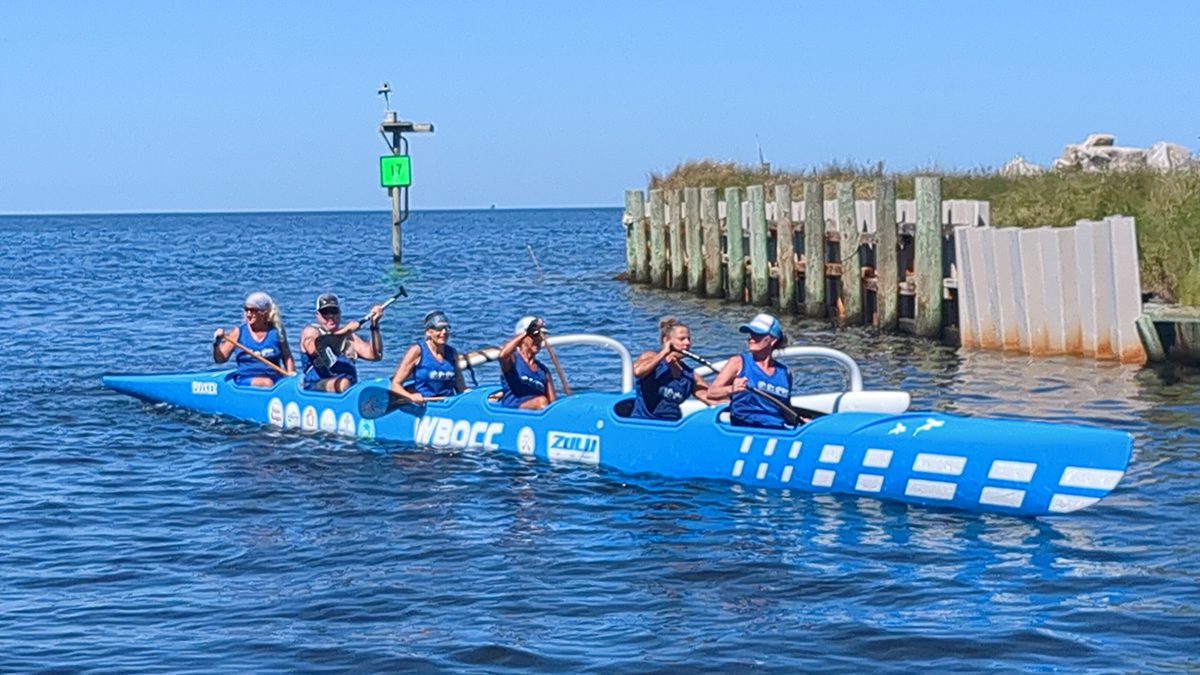
The lighter version of the canoe, known as a va’a, was employed for We the Water. Typically described with Hawaiian words, the vessel is 44 feet long and 16.5 inches wide with two arms known as iakos attached to the outrigger, or ama, which provides stability in the ocean surf.
The carbon fiber Unlimited Class six-person outrigger canoe weighs just 145 pounds, versus some models that weigh about 400 pounds.
Compared to a regular canoe, which has a flat hull for navigating shallow waters, the outrigger canoe’s hull is narrow and aerodynamic, although it can still manage in shallow waters.
“It can take on a lot of swell,” Burton said. “This vessel 100% has its origins in the ocean.”
Originally from Winston-Salem, Burton has participated in numerous outrigger races in Hawaii and California, where she began paddling in 2007 with the Dana Point Outrigger Canoe Club.
After returning in 2013 to North Carolina, she became one of the co-founders of the Wrightsville club in 2016. At the time, Reggie Barnes, the owner of Eastern Skateboard Supply in Wilmington, had purchased two outrigger canoes.
“From there, he kind of put the word out, and a group of us — about 15 — came together,” she said about the club.
Members regard the club as their family on the water, or their ohana. Each leg of the We the Water paddles provided opportunities to meet so many coastal residents, she said, reinforced the shared love of the water and appreciation for the need to keep it clean.
“Blood is not family,” Burton, who serves as the club’s long-distance coach, wrote in an email response to Coastal Review. “Ohana is built from those who come into your life and make it more fulfilling … We may have started out with the purpose to bring awareness, but I believe in the end we now have become more aware, more fulfilled, and more in tune with those who truly need the water as a way of life.”
In addition to mahalo — gratitude — for the warmth and kindness extended by the folks they met, the team also delighted in educating them about the outrigger sport and culture, Burton added, as well as being together for a worthy adventure.
“We spent five days together ‘talking story,’” Burton said. “That’s pretty important in the Hawaiian culture.”
Videos of the outrigger underway show it zipping through the sound at a surprising speed, with six paddlers using synchronized, powerful strokes, as if they’re shoving the water away. Each position has a specific role, with the stroker at the front setting the pace, the steersman in the back in charge of navigating, the mid seats calling when to change sides: “hut” for switch, “hoe” to paddle.
“Remember, we have no motor,” Burton said. “We have to rely on human power, ocean power and wind power.”
With Hurricane Lee churning miles offshore, the conditions were rough, but the tide worked in their favor, at one point propelling the boat to about 11 mph.
“The swell was amazing,” Burton said. “When we hit that tide, it helped us along — it’s like an invisible paddler.”
Things really amped up on Day 2, after leaving Harkers Island that morning in the dark, Burton recounted. By the time they hit Drum Inlet, the wind was “brutal,” with a crosswind blowing steady at around 18 mph, with 25 to 30 mph gusts. But the team toughed it out, countering the wind by zigzagging across. The last day was easier, with none of the “crazy” wind or swell, she said.
Teams of six paddlers traded off in the morning and afternoon, which each run covering about 20 to 25 miles, depending on conditions. They were joined by a North Carolina Wildlife Resources Commission boat for the 24-mile leg in Drum Inlet, and Cedar Island hunting and fishing guide Buddy Goodwin served as their escort vessel for the remainder of the trip, sharing his local insights.
Crew changes between those on the escort boat and the canoe were done in the water so paddlers could switch in and out of the canoe without it having to stop.
To Allen, it was especially rewarding to be together with her teammates in a different environment, with the vast openness of the Pamlico Sound, and seemingly endless estuarine marshes. At one point, they saw many hundreds of stingrays while paddling through seagrass beds behind Ocracoke.
The adventure was also rewarding for the Coastal Federation, which between a silent auction, sponsorships and donations for the event, she said, raised about $10,000.
Allen said she looks forward to the final leg of We the Water next year, when the Wrightsville Beach team will paddle from Buxton to Carova and once again “use the outrigger to tell the story of that coast and highlight all the good work that’s being done coastwise.”
By then, maybe Outer Bankers will be working to establish their own outrigger canoe club.
“An outrigger is truly a connection to the water like no other,” Allen said. You might start out looking for a fun way to exercise, she added, but it’s easy to get hooked.
“Because it is a culture, it’s a community, it’s a sport, it’s an activity,” she said. “It’s been in and on the ocean. And conditions that you don’t get to experience otherwise. So, it truly is extraordinary. And something that I think everyone should try to get the chance to do in their life.”



